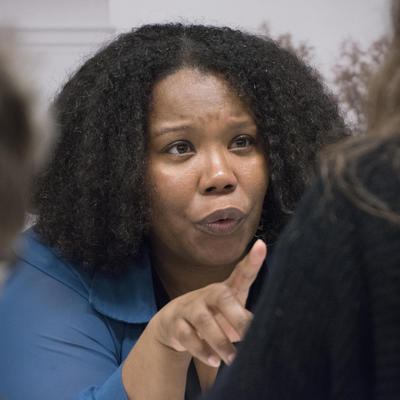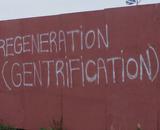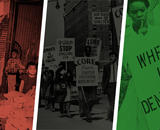
Nishani Frazier - Fellow
Dr. Nishani Frazier is Associate Professor of History at Miami University of Ohio. Prior to Miami University, she held positions as Associate Curator of African American History and Archives at Western Reserve Historical Society, Assistant to the Director of the Martin Luther King, Jr. Archives at the Martin Luther King Center for Nonviolent Social Change, and personal assistant for Dr. John Hope Franklin, before and during his tenure as chair of President Bill Clinton’s advisory board on “One America”. She recently completed a Fulbright Fellowship in Norway.
Her research interests include 1960s freedom movements, oral history, food, digital humanities, and black economic development. Nishani’s recent book publication, Harambee City: The Congress of Racial Equality in Cleveland and the Rise of Black Power Populism, was released with an accompanying website also titled Harambee City. Harambee City website provides a second layer of book “reading” via online access to maps, archival documents, teacher lesson plans, and oral history interviews. Dr. Frazier has consulted on several digital history grants, including a NEH Digital Start up grant for an interactive app related to Freedom Summer.
Frazier’s other writings include: “To Die For the People: Prophecy and Death in the Rhetoric of Martin Luther King, Malcolm X, and Fred Hampton” in Homegoings, Crossings, and Passings: Life and Death in the African Diaspora; “Building a Black Nation: CORE, Black Power, and the Community Development Corporation Movement” in The New Black History; and “A McDonald’s That Reflects the Soul of a People: McDonald’s Corporation, Operation Black Unity, Hough Area Development Corporation, and Black Economic Empowerment” in The Business of Black Power.
Although Frazier’s recent professional experience centers on historical analysis of 1960s black economic development efforts, her personal background began with hands on observation and service for Southeast Raleigh Community Development Corporation in North Carolina. Southeast Raleigh CDC worked to revitalize its target community of low- and moderate-income African-American households by countering the interrelated problems of poverty, unemployment, affordable housing, lacking preservation of cultural identity, and racism. Over its life, the organization constructed moderate-income homes, trained high school dropouts in construction trades, provided daycare services, and helped other nonprofit organizations throughout North Carolina via shared ideas, training, and workshops. Notably, Southeast Raleigh CDC came to be heavily influenced by the past economic development activities of black activists featured in Frazier’s book Harambee City.
You can follow her on Twitter at @SpelmanDiva. For more information on Harambee City or Cleveland’s Black Freedom Movement, see harambeecity.lib.miamioh.edu.

